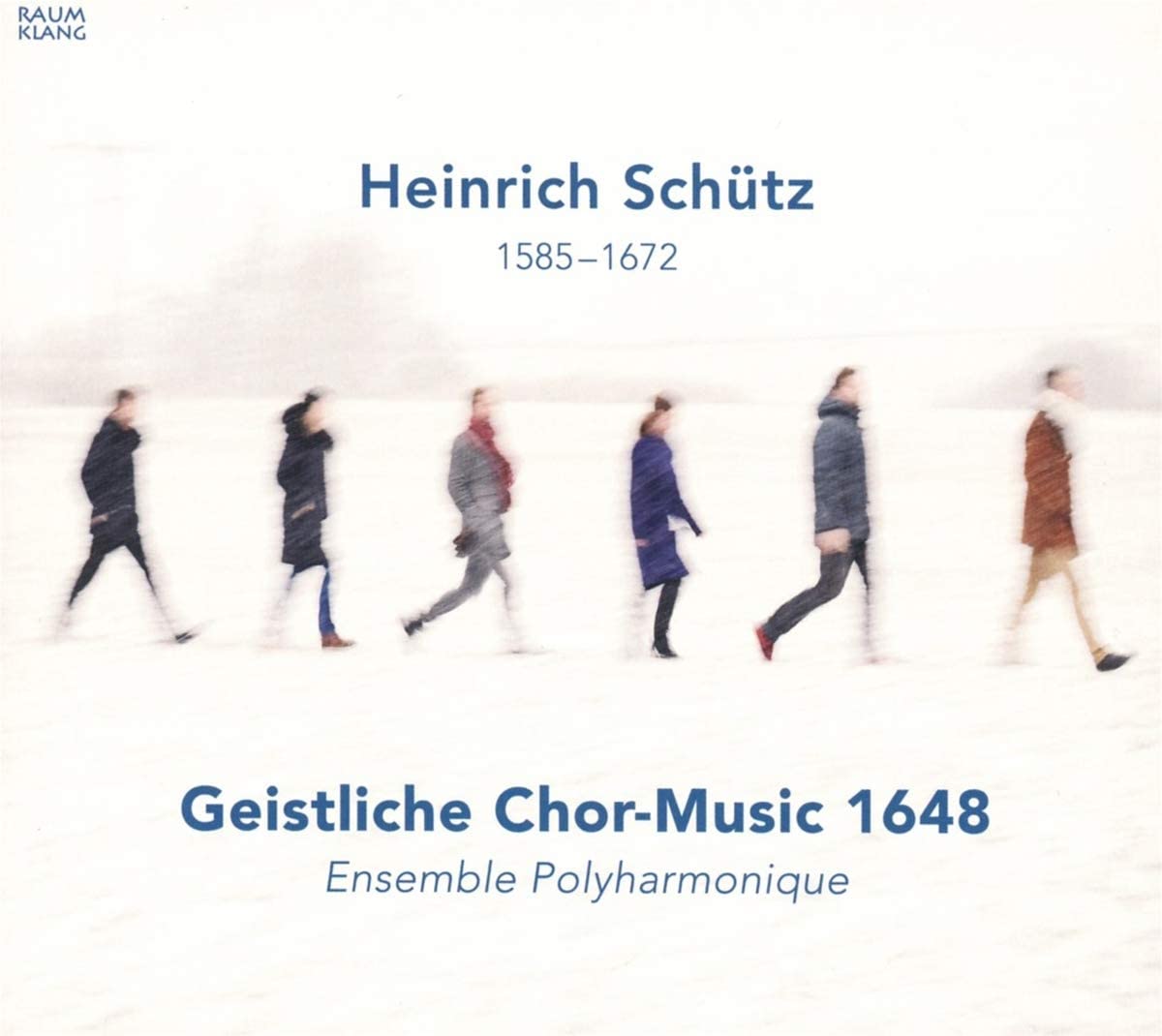Ensemble Polyharmonique
57:20
Raumklang RK 3903
Click HERE to buy this recording at amazon.co.uk
Schütz’s Geistliche Chor-Music was produced in 1648, just as some semblance of order was restored to Germany at the end of the Thirty Years War. The 29 motets it contains are the summary of a work in progress, with more than a passing nod to the Italian examples in Schütz’s stated exploration of polyphonic writing, and with provision – not always necessary – for a basso continuo.
Listeners seeing Geistliche Chor-Music headlined and expecting the complete op. 11 will be disappointed. There are only 12 of the 29 numbers here, plus two works for duet combinations of voices (SWV 294 & 289) from Kleine geistliche Konzerte I and a trio (SWV 325) from Kleine geistliche Konzerte II, chosen to make the most of the ensemble’s line-up of SSATTB. Missing entirely is the final group of motets with larger combinations of parts, including instrumental lines, like the wonderful lament Auf dem Gebirge (SWV 396) for five trombones and two altos and the adaptation of Andrea Gabrieli’s Angelus ad pastores.
While this is understandable, it is a pity that the euphonious group Ensemble Polyharmonique should choose a selection from such a well-known and often-recorded work of Schütz to present their skills. The sopranos are a well-matched duo, even if not quite as clear of the inevitable tendency to colour their notes with modern vibrato as the steelier lower parts. The bass is a real basso, with a characteristically cavernous timbre and the middle parts well-suited for consort singing.
I quite like the sound, as well as admiring the skill and professionalism of the one-to-a-part ensemble. But after hearing the CD through a number of times, the performances were just a bit samey – I would have liked more tonal and expressive variety to justify a recording like this of part of a single opus, when there are many complete ones – like Rademann’s 2007 version in the complete Schütz project for Carus or Suzuki’s 1997 take using viols and with the Die Sieben Worte as a filler – continuing to claim attention.
David Stancliffe
